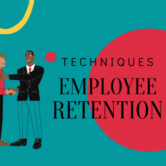Why Employee Retention Depends on Empowering New Hires Early

In today’s dynamic job market, employee retention is one of the most pressing challenges facing organizations. While competitive salaries and benefits attract talent, they don’t guarantee long-term commitment. What truly influences an employee’s decision to stay with a company is how they’re treated from the very start. Empowering new hires early is no longer a luxury—it’s a necessity for building high-performing, loyal teams.
The Critical First 90 Days
The first few months in a new role often determine whether an employee sees a future with your organization. Studies show that nearly 30% of new employees leave within the first 90 days. Why? Often, it’s due to a lack of clear direction, insufficient engagement, or feeling undervalued.
Empowering new hires means giving them clarity, support, and meaningful work from day one. When new employees feel confident, involved, and trusted, their sense of belonging grows—and so does their likelihood of staying.
Why Traditional Onboarding Falls Short
Many companies still rely on outdated onboarding models that focus solely on paperwork, brief orientations, and generic training. These systems may check logistical boxes but do little to integrate the employee emotionally or socially. A lackluster start can create confusion, disconnect, and frustration.
Empowerment-oriented onboarding, on the other hand, is proactive, intentional, and people-focused. It helps new hires quickly feel like contributors, not outsiders.
Key Strategies to Empower New Hires
1. Start Before Day One
Send a welcome package or personalized message before the new hire’s first day. Share company values, team introductions, and a basic roadmap. This builds excitement and demonstrates that you’re invested in their success.
2. Establish a Purpose-Driven Culture
Help new employees understand how their work aligns with the organization’s mission. People want to do work that matters. When they see the impact they’re making, they’re more likely to commit long-term.
3. Provide Tools for Autonomy
Equip new hires with the resources, access, and authority they need to succeed. Let them make decisions and learn through experience. Autonomy fosters confidence and creative thinking.
4. Foster Human Connections
Strong workplace relationships increase employee satisfaction. Organize team lunches, virtual coffee chats, or buddy systems to help new hires build bonds that make the work environment more welcoming.
5. Deliver Immediate and Ongoing Feedback
Rather than waiting for a 30- or 90-day review, provide immediate, actionable feedback. Celebrate small wins early and often. Constructive guidance paired with recognition fuels motivation.
6. Include Them in Real Conversations
Let new hires participate in brainstorming sessions, cross-department meetings, and team discussions. Early exposure to broader company goals helps them feel included and gives valuable context for their role.
The Long-Term Benefits of Early Empowerment
Companies that prioritize early empowerment reap a wide range of benefits:
- Higher retention rates: Employees who feel supported are more likely to stay.
- Faster productivity: Empowered employees take initiative sooner.
- Stronger engagement: Feeling trusted leads to emotional investment.
- Positive employer branding: Employees share their positive experiences, attracting more talent.
Empowerment builds loyalty—and loyalty builds high-performance teams.
Leadership’s Role in Empowering New Hires
Leadership is the foundation of an empowering culture. Managers must lead by example—encouraging open dialogue, practicing transparency, and recognizing contributions at every level. A culture of trust and encouragement cascades from the top down.
Here’s how leadership can help:
- Create psychological safety for new ideas and honest feedback
- Involve new hires in problem-solving processes
- Give visibility to leadership pathways and career development early on
Final Thoughts
If your goal is to reduce turnover and increase performance, look no further than your onboarding and early integration strategy. Empowerment isn’t a perk—it’s a powerful tool to shape the trajectory of your new employees’ journey.
When people feel seen, heard, and valued from the start, they’re far more likely to build a future with your company. Start strong, and you won’t just retain talent—you’ll inspire it to thrive.










